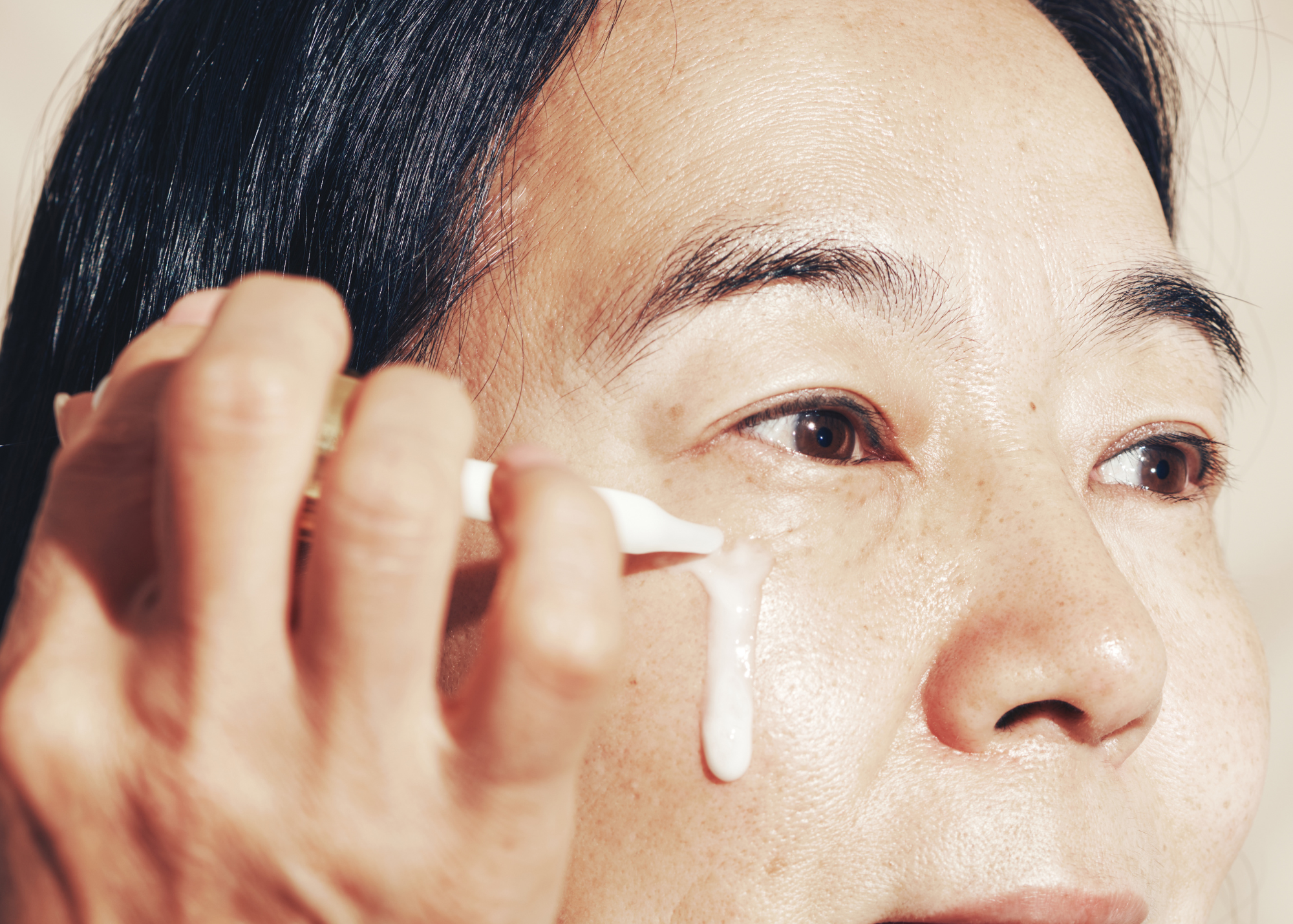Retinol is one of the most beloved skincare products on the market.
It’s a synthetic form of vitamin A that’s used in creams, lotions, and serums and is commonly recommended by dermatologists.
The goal of the product? Cell turnover. Which is a scientific way of saying, “plump and rejuvenated skin.”
Yes, retinol can help with cell turnover … in theory.
But that doesn’t necessarily mean it should be used by everyone.
For instance, retinol is particularly challenging for people with sensitive skin. The rapid cell turnover it promotes can sometimes cause a burning sensation (called “retinol burn”).
While retinol seems natural (how bad could vitamin A possibly be for your skin?) some studies raise questions about its safety.
Let’s dive into the science behind retinol—plus retinol alternatives that can help you apply a little extra love to your skin.
Do You Need a Retinol Alternative?
People are led down the path of retinol alternatives for a few reasons:
- Skin sensitivity. It feels defeating to invest in retinol, and find that it doesn’t work for your sensitive skin type.
- Research. Although retinol is highly praised, scientific research does raise some questions about the safety of synthetic vitamin A.
- Skin barrier function. The skin barrier is a careful balance of natural oils and essential nutrients. This keeps healthy ingredients in and harmful pollutants out. The skin barrier may be disrupted by harsh ingredients, like retinol—and may require intentional, long-term treatment for restoration.
Is There Anything Wrong with Using Retinol?
It’s not our intention to fearmonger any ingredient. However, we do want to provide the science and information that can help you make an informed decision about your health.
Here are some things to consider before using retinol:
Our Favorite Retinol Alternative: Bakuchiol
Bakuchiol is the holy grail of retinol alternatives. It’s an antioxidant and plant extract that has roots in Chinese and Indian medicine—and it’s extremely gentle on the skin.
Studies show that bakuchiol is anti-inflammatory and has profound effects on the skin. It’s commonly used as a retinol alternative because it promotes cell turnover and rejuvenation, but not so rapidly that it causes irritation.
It also works to boost mitochondria and preserve skin barrier function (something retinol has not shown to do).
It’s common to use this retinol alternative for its soothing effects. Unlike retinol, bakuchiol should help relieve irritation. In fact, most people can use it in their skincare routine every day.
Benefits of Bakuchiol for Skin
Bakuchiol can do so much good for your skin—in most cases, for any skin type at any age. On a molecular level, it shares few similarities with retinol, but the results can be just as effective as retinol for graceful aging.
Bakuchiol is a breakthrough ingredient for women who struggle with sensitivity, acne, or eczema—who want a revitalizing skincare routine without fear of increased symptoms.
Here are just a few of the powerful benefits of bakuchiol:
Exploring Other Retinol Alternatives
Revitalizing skincare we love.
Some of these products have natural vitamin A in them (like the tallow balm). Others offer a more holistic approach to skincare, using different ingredients that have similar effects to retinol products.
We like to operate on the principle that one ingredient (retinol, for example) isn’t going to change your skin. Instead, it’s a combination of healthy skin superfoods and lifestyle practices (like diet, hydration, and even sweating) that really do the most to boost cellular rejuvenation.
-
Tallow Balm
We love tallow balm for its hydrating and moisturizing properties, but it also has soothing benefits that play a role in cell turnover, too. One of them is the natural and whole version of vitamin A.
We don’t recommend using it as your entire skincare routine, but tallow balm can certainly take care of the hydration, while adding linoleic acid and natural vitamins and minerals to your skin.
-
Collagen
There are some skincare products that contain collagen, but we find the effects more powerful when we consume collagen in our diets.
Dietary collagen helps with so many things—like building protein, growing hair and nails, and strengthening joints. For our skin, regular collagen consumption can produce a natural glow and increase elasticity. We like to eat collagen in the form of bone broth, gelatin, and high-quality powder supplements (make sure they’re 100% grass-fed).
-
AHA Fruit Acids
Alpha hydroxy acids (or AHA fruit acids) are a group of gentle acids that come from plants, particularly fruits. They work by gently exfoliating the skin, targeting dark spots and fine lines. Since they come from fruit, they naturally contain antioxidants.
While they’re not the same as retinol, AHA fruit acids offer many similar benefits. We recommend adding them to your skincare routine, at least once or twice a week.
-
Blue C-Phycocyanin Algae
This little known ingredient comes from plant algae, and it’s a powerful antioxidant (you can tell just by looking at it).
This is just where the benefits of blue C-phycocyanin algae start. Recent studies show it helps decrease the effects of UVB radiation while inhibiting the enzyme responsible for inflammation.
Our Take on Retinol Alternatives
Whenever we’re exploring cell-boosting skincare, we want to come from a healthy place where we’ve made peace with our skin—at any stage.
It’s so common for us to be bombarded with “miracle” products and expectations for the way we should look at and think about our skin.
Skincare products can certainly help with graceful aging, but they won’t change who we are. If we expect that, we’re approaching skincare with goals that won’t be met.
Instead of believing one topical ingredient will change everything, we encourage you to look inward. Find the space within you to appreciate your fine lines for what they are—symptoms of living.

